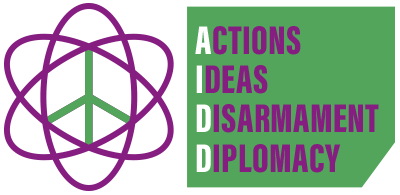On 27 October, the UN General Assembly’s Disarmament and Security Committee voted for negotiations in 2017 on a treaty to prohibit nuclear weapons, with momentous consequences for Trident renewal.
by Rebecca Johnson via OpenDemocracy
Over 71 years after atomic weapons flattened the cities of Hiroshima and Nagasaki in 1945, leading to the development of over 50,000 nuclear weapons by ten nations, a majority of 123 UN Member states have voted to convene a multilateral UN conference in 2017 “to negotiate a legally binding treaty to prohibit nuclear weapons, leading towards their total elimination“. Â Led by a broad cross section of nuclear free countries, including South Africa which eliminated its nuclear arsenal in 1991, their objective is to create a nuclear weapons prohibition regime under International Humanitarian Law. Their intention is to accelerate the abolition of today’s nuclear arsenals of over 15,000 weapons, reduce the proliferation-driving value attached to these weapons of mass destruction, prevent nuclear detonations and deter further modernization and proliferation.
Building on the 1968 Non-Proliferation Treaty (NPT), the new multilateral treaty will for the first time provide a comprehensive approach to prohibiting activities such as the use, deployment, production, transporting, stockpiling and financing of nuclear weapons. It will also extend the NPT’s nuclear disarmament obligation by creating a clear, unequivocal legal obligation to eliminate existing arsenals that will apply to non-NPT as well as all NPT states.
The UK was among 38 states that voted against negotiating such a treaty, though diplomats privately acknowledged that they were in a weak position to stop negotiations from going ahead. Â A further 16 governments decided to abstain.
If the UN First Committee vote is confirmed by the UN General Assembly in December, as is likely, the negotiations will go ahead, with sessions timetabled for March, June and July 2017 in New York.  The resolution for “taking forward multilateral nuclear disarmament negotiations”, which was led by Austria, Brazil, Ireland, Mexico, Nigeria and South Africa, with 57 co-sponsors, calls for the negotiations to be open to all UN Member States, in accordance with General Assembly rules of procedure, which means that if consensus cannot be achieved, decisions are taken by majority.  Relevant international organisations and civil society will be actively encouraged.
All states will be encouraged to participate, but none will be given a veto power to block the negotiations or decisions. This makes it possible to envisage a nuclear ban treaty being delivered in time to be adopted by the United Nations at a high level meeting in 2018, as some states have already advocated.
This UN vote and next year’s negotiations look set to be a huge game-changer. So why is it being ignored by mainstream British media?
As noted by a handful of forward-looking Green, Labour and Scottish MPs during last July’s Trident debate, a nuclear ban treaty is better for UK security than spending over £205 billion on upgrading Trident and threatening to fire it at Moscow or wherever, as Theresa May currently advocates.
In two speeches given by UK ambassador Matthew Rowland on 14 October, the tone was anxious and hectoring, as this desperate British diplomat pleaded with his non-nuclear peers to join him in voting against a resolution that he knows the UK will not be able to avoid or withstand.  Still he proclaimed that “as long as nuclear weapons exist NATO will remain a nuclear alliance” and that the UK intends to have nuclear weapons for “the foreseeable future“. Even in NATO countries, however, those assumptions are being questioned and criticised.  Weeks before the UN vote, the Norwegian, Dutch and Belgian parliaments strongly argued for their governments not to oppose the resolution or negotiations, though only the Netherlands had the courage to defy the NATO whip and abstain.
In a further development initiated by European Greens, MEPs supported a European Parliament resolution that called for EU governments to participate constructively in the proposed UN multilateral negotiations “to prohibit nuclear weapons in 2017 “. Backed by 415 MEPs, this EP resolution also invited “Vice-President/High Representative Federica Mogherini and the European External Action Service to contribute constructively to the proceedings of the 2017 negotiating conference”. Only 124 MEPs voted against, mainly from the far right parties, with 74 abstentions.
See full article here.
